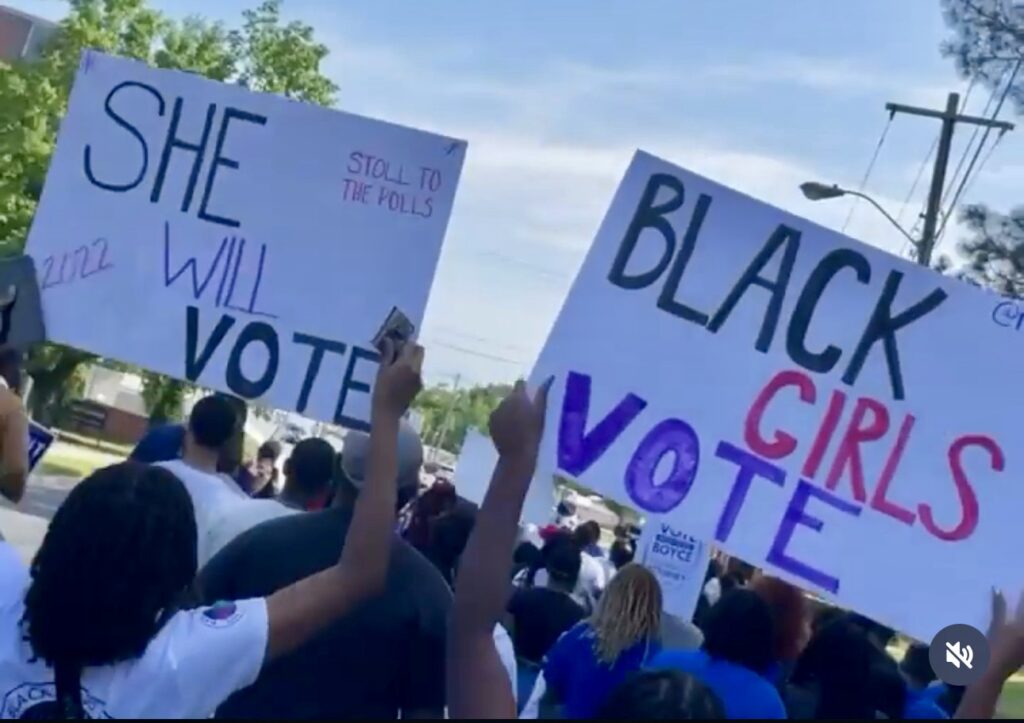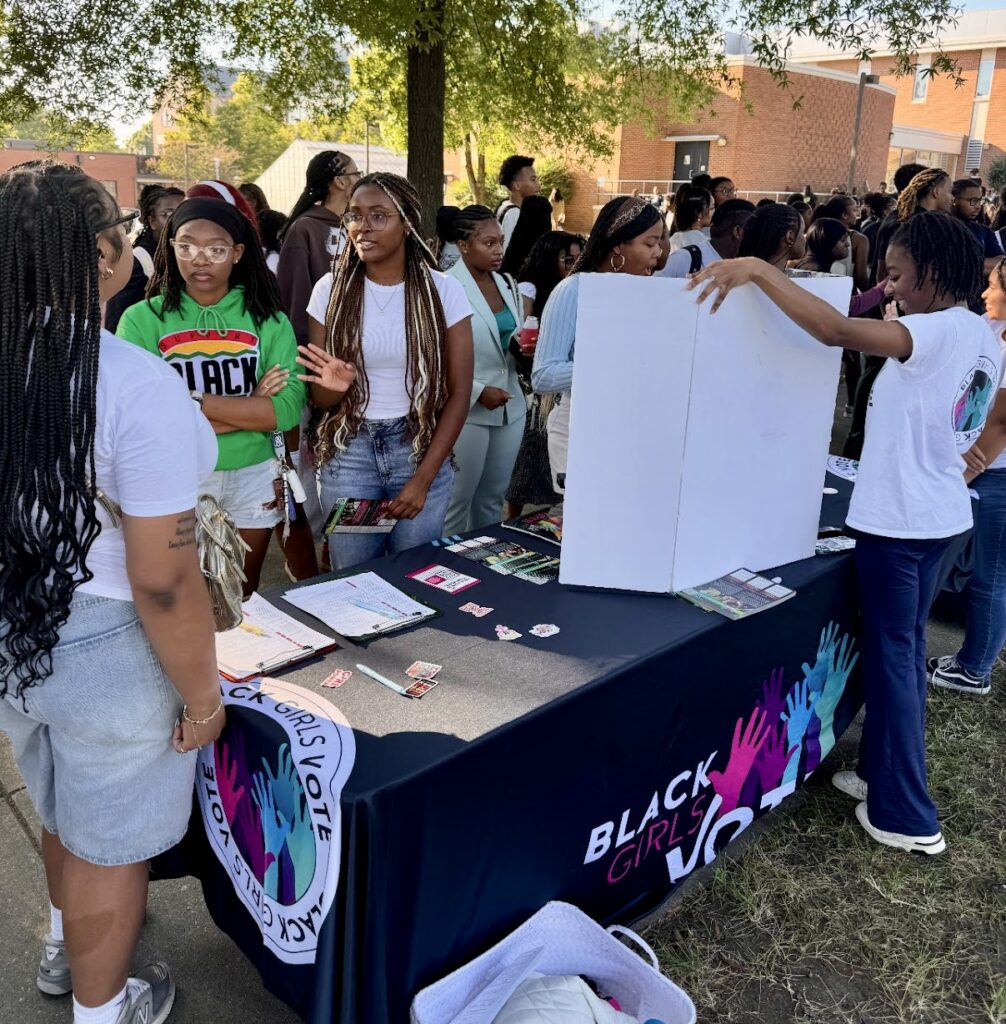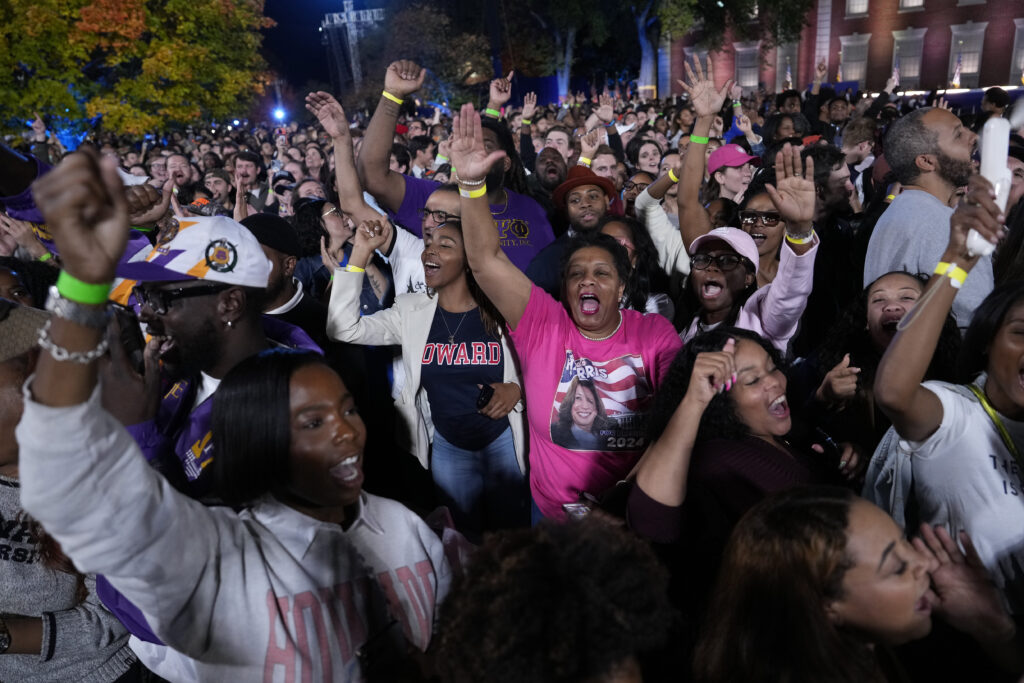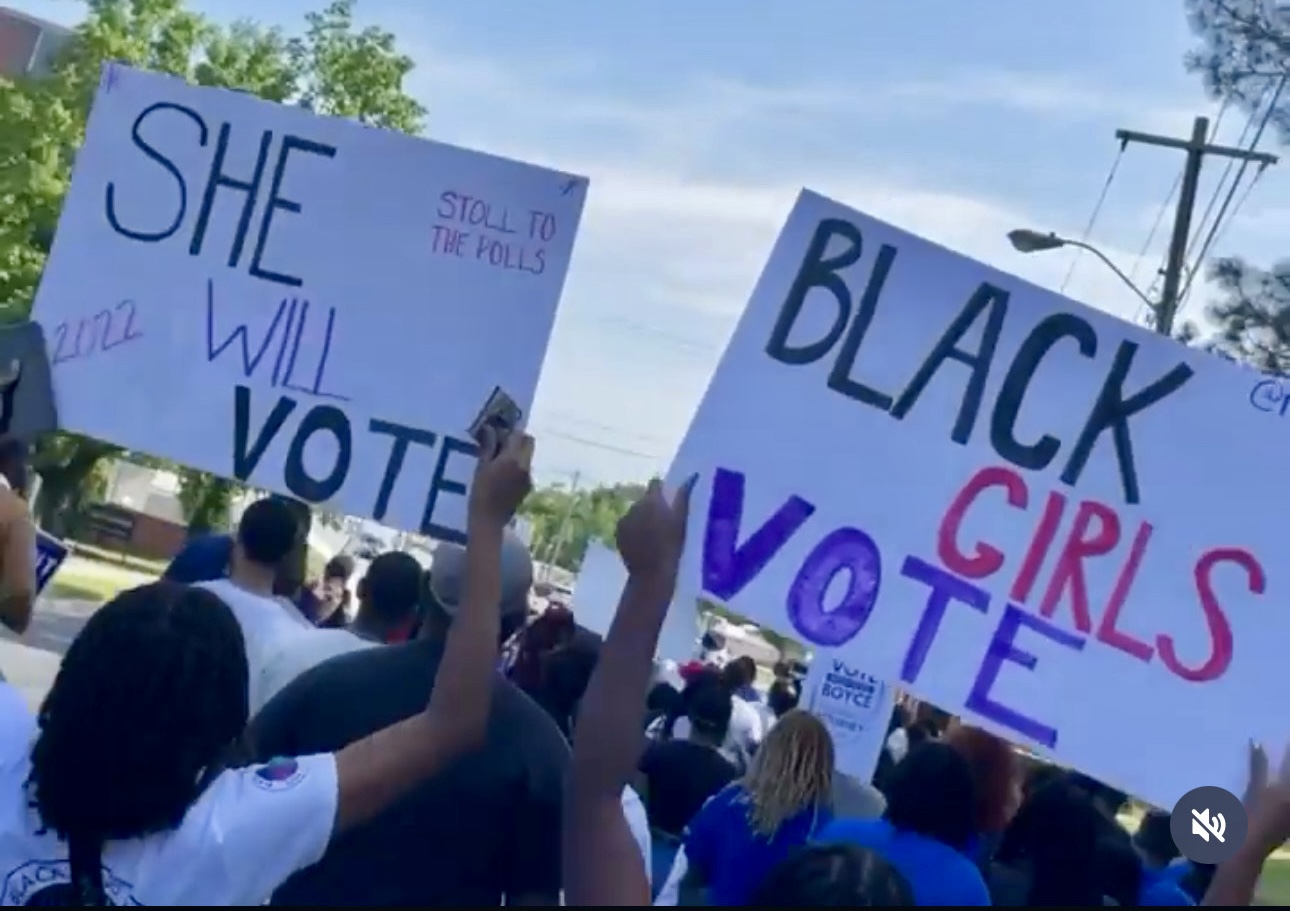Even though young Black voters are new to casting ballots, many understand the importance of their voices and the threat of the weakening of voting rights in recent years.
“In the next 2-3 years, we’re going to be the next generation to really step out into the real world,” said Mariah Queen,
who’s a political science major at Delaware State University, an HBCU in Dover, Delaware.
“And because we’re stepping into the world with this real generation, we need to ensure that our perspectives are being acknowledged, our voices are being heard, and we are making sure that there is a spot at the table for us,” Queen said.

In interviews with Black News & Views, Queen and other young Black voters said they are concerned about issues like food deserts, the unhoused, and the growing atmosphere of racism in the country.
And as the country approaches the 60th anniversary of the signing of the Voting Rights Act, and contends with recent efforts to roll back voting rights in a number of states, the youth vote has become increasingly crucial, especially under a second Donald Trump administration, voting advocates said.
There is work to be done, said those working to encourage people to visit the ballot box. It can be a challenge among young Black voters who have to overcome barriers such as voter suppression and apathy.
For example, in North Carolina last year, an appeals court blocked students at the University of North Carolina in Chapel Hill from using their digital IDs to vote. In 2023, legislators in Ohio signed an election law requiring a state photo ID in order to vote, which puts out-of-state college students in a bind. And in Tarrant County, Texas, one of the state’s most populous counties and home to Fort Worth, local Republican officials moved to limit the number of early polling sites on campuses, although they were ultimately not successful.
According to recent data from the Center for Information & Research on Civic Learning and Engagement (CIRCLE), youth turnout in the 2024 election for young Black women was 40% and for young Black men was 34% – marking a slight drop from 2020. A majority of them voted for Democratic presidential candidate Kamala Harris over Republican Donald Trump.
Young voters want to stand up for what they believe
Despite the slight decrease in numbers, young Black voters said they get it. They believe they owe it to the activists who came before them to make sure they vote, and they view the current anti-DEI, anti-Black history atmosphere in the country as a threat that calls for them to push back.
“I feel like voting means to me having a voice to continue to speak what my ancestors built upon,” said Ryann Dawkins, who recently graduated from North Carolina A&T University with a bachelor’s degree in liberal studies and a concentration in pre-law.
“And I feel it’s blatant disrespect for me not to go out and vote and be an educated voter … especially with the different things that have been happening in current day,” Dawkins said.
In fact, there is little difference between young Black voters and voters overall in terms of what worries them. Young Black voters told Black News & Views that they care about issues like nutrition, the unhoused, racism, gender issues, and more.
Denise Demontagnac, who graduated from the University of Maryland with a bachelor’s degree in government and politics and a minor in law, said she sees national issues playing out in College Park, Maryland, where she lives.
“We live in a food desert,” Demontagnac said of the area that, she believes, lacks access to healthy foods. “Even more families are experiencing food inse08curity, housing insecurity, and things that directly impact the College Park community.”
Queen said she is concerned about being in spaces where she’s not around a lot of Black people, whether at school or the workplace.
“I feel like the climate that we’re moving into is a space where I’m going to be uncomfortable. And as Black women, we are going to continue being uncomfortable wherever we go,” Queen said.

In a nod to the recognition in recent years to the large impact that Black women have had on Black voter turnout, voting advocates like Nykidra “Nyki” Robinson, founder and CEO of Black Girls Vote, a nonprofit organization that addresses concerns regarding Black women, said it is important for the public to understand that Black women are committed voters.
“We’re a loyal voting bloc and demographic, and so it’s important for us to continue to encourage women to vote, Black women, especially our young Black girls, to vote,” Robinson said. “But
then also having conversations about policy and what we are getting in return for our vote.”
Robinson added, “I believe that all relationships should be mutually beneficial.”
In this past election, 92% of Black female voters voted for Kamala Harris, according to multiple sources.
Young voters are critical to keeping the country running well
With a political atmosphere growing increasingly unfriendly to the concerns of Black Americans, organizations said they recognize that the youth vote is a crucial bloc.
There are a number of organizations and groups that help educate and get young Black voters to the polls, including Black Voters Matter, a nonprofit that mobilizes Black communities to build power.
The group has successfully increased Black turnout in several key elections.
For example, in the 2017 U.S. Senate election in Alabama between Democrat Doug Jones and Republican Roy Moore, Black Voters Matter raised awareness on college campuses such as Tuskegee University and Alabama State University. As a result, Black voters came out in huge numbers and shocked the country as the election unexpectedly went to Jones.
They also contributed to the historic turnout during the 2020 presidential election, as well as the two Senate run-offs in Georgia that gave Joe Biden the presidency and the Democrats control of the U.S. Senate.

“When young Black voters vote, we get action on our issues. It’s not always going to be 100% of what we wanted,” said Cliff Albright, co-founder of Black Voters Matter.
“That’s a part of the outreach and education process,” Albright said. “It’s helping folks to see that we’ve got to participate to get some movement, but we may not get all the movement.”
Leaders of a Beautiful Struggle, a political think tank based in Baltimore, Maryland, that advocates for young voters, is based on the concept that voting is an opportunity for young people to utilize their power.
“It is a priority for Black people to vote as a method of having our material needs addressed,” said Maryrejahlil Lanier, a policy advocate with Leaders of a Beautiful Struggle.
“So utilizing voting as a way to display power, because we recognize that it’s through a show of power that communities are able to have their needs met,” Lanier said.
For the younger generation just beginning to cast ballots, understanding what’s at stake for them and the country is key, they said.
“It’s always important to get the information on the candidates, focus on what you’re doing, learn how to register, how to vote,” said Dawkins of North Carolina A & T. “You can also become somebody that registers other people so that you can help them out as well.”
This article is part of a collaboration with the Associated Press, Black News & Views, and The Amsterdam News. The work is part of the AP Inclusive Journalism Initiative supported by the Sony Foundation.






